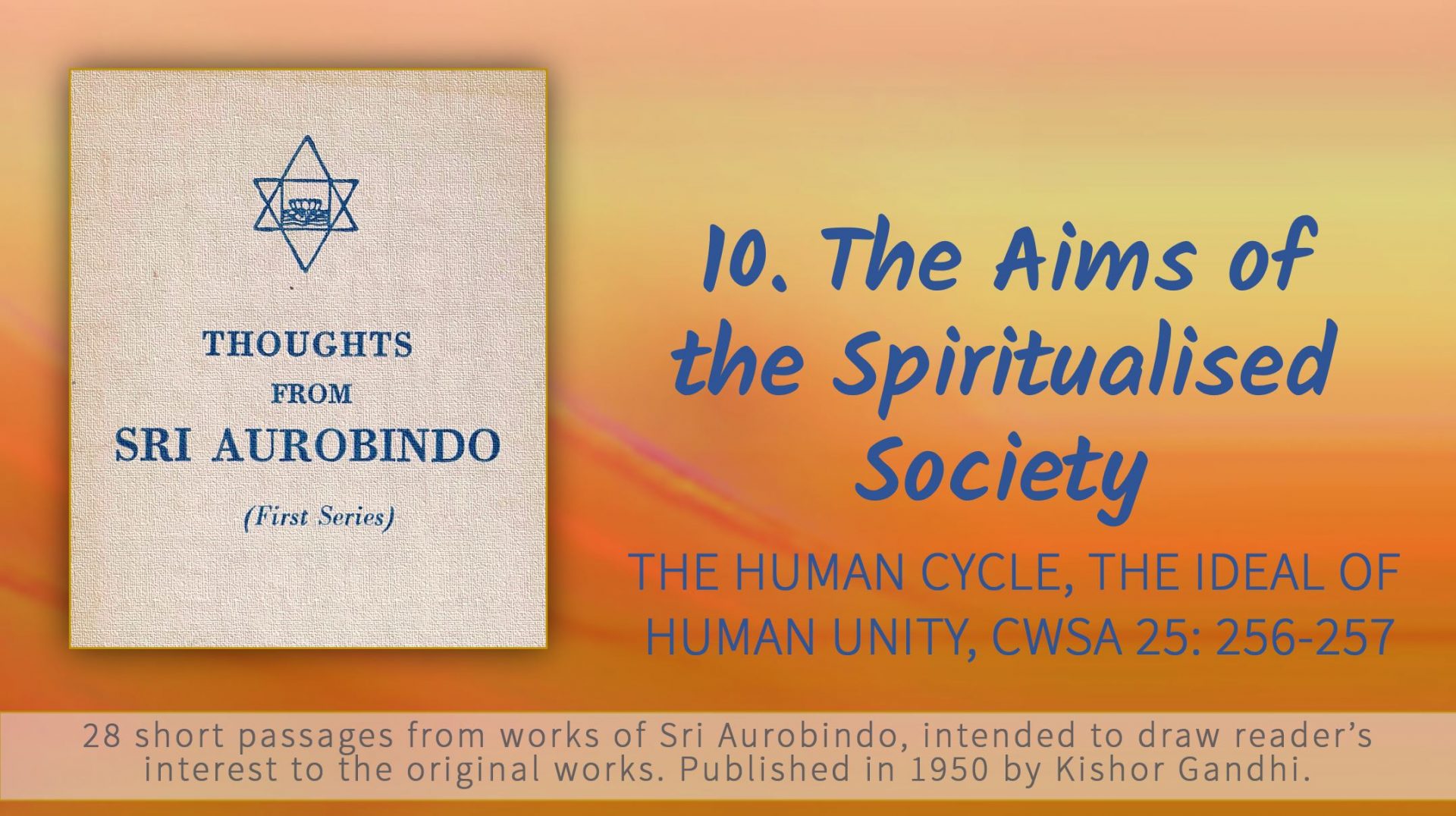
A society which was even initially spiritualised, would make the revealing and finding of the divine Self in man the whole first aim of all its activities, its education, its knowledge, its science, its ethics, its art, its economical and political structure. As it was to some extent in the ancient Vedic times with the cultural education of the higher classes, so it would be then with all education. It would embrace all knowledge in its scope, but would make the whole trend and aim and the permeating spirit not mere worldly efficiency, but this self-developing and self-finding. It would pursue physical and psychical science not in order merely to know the world and Nature in her processes and to use them for material human ends, but to know through and in and under and over all things the Divine in the world and the ways of the Spirit in its masks and behind them. It would make it the aim of ethics not to establish a rule of action whether supplementary to the social law or partially corrective of it, the social law that is after all only the rule, often clumsy and ignorant, of the biped pack, the human herd, but to develop the divine nature in the human being. It would make it the aim of Art not merely to present images of the subjective and objective world, but to see them with the significant and creative vision that goes behind their appearances and to reveal the Truth and Beauty of which things visible to us and invisible are the forms, the mask or the symbols and significant figures.
A spiritualised society would treat in its sociology the individual, from the saint to the criminal, not as units of a social problem to be passed through some skilfully devised machinery and either flattened into the social mould or crushed out of it, but as souls suffering and entangled in a net and to be rescued, souls growing and to be encouraged to grow, souls grown and from whom help and power can be drawn by the lesser spirits who are not yet adult. The aim of its economics would be not to create a huge engine of production, whether of the competitive or the co-operative kind, but to give to men — not only to some but to all men each in his highest possible measure — the joy of work according to their own nature and free leisure to grow inwardly, as well as a simply rich and beautiful life for all. In its politics it would not regard the nations within the scope of their own internal life as enormous State machines regulated and armoured with man living for the sake of the machine and worshipping it as his God and his larger self, content at the first call to kill others upon its altar and to bleed there himself so that the machine may remain intact and powerful and be made ever larger, more complex, more cumbrous, more mechanically efficient and entire. Neither would it be content to maintain these nations or States in their mutual relations as noxious engines meant to discharge poisonous gas upon each other in peace and to rush in times of clash upon each other’s armed hosts and unarmed millions, full of belching shot and men missioned to murder like hostile tanks in a modern battle-field. It would regard the peoples as group-souls, the Divinity concealed and to be self-discovered in its human collectivities, group-souls meant like the individual to grow according to their own nature and by that growth to help each other, to help the whole race in the one common work of humanity. And that work would be to find the divine Self in the individual and the collectivity and to realise spiritually, mentally, vitally, materially its greatest, largest, richest and deepest possibilities in the inner life of all and their outer action and nature.
— The Human Cycle
Now in: The Human Cycle, The Ideal of Human Unity CWSA 25: 256-257



About Savitri | B1C3-10 The New Sense (pp.29-31)